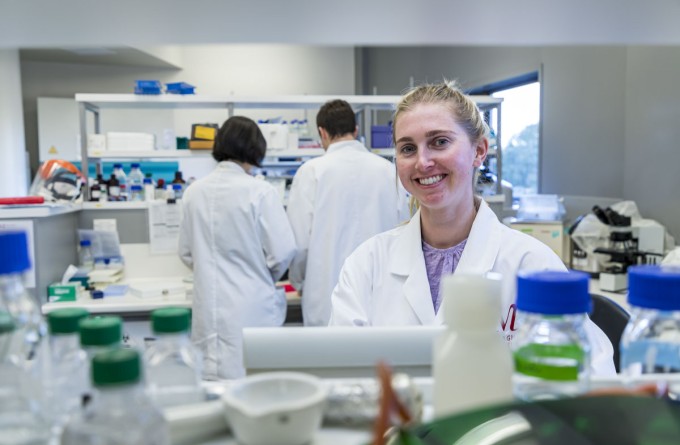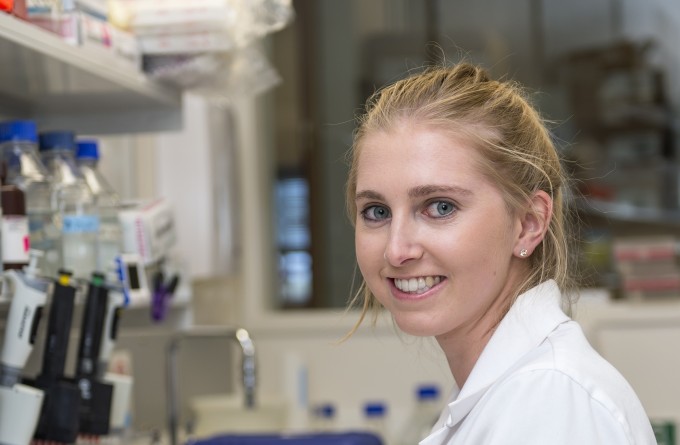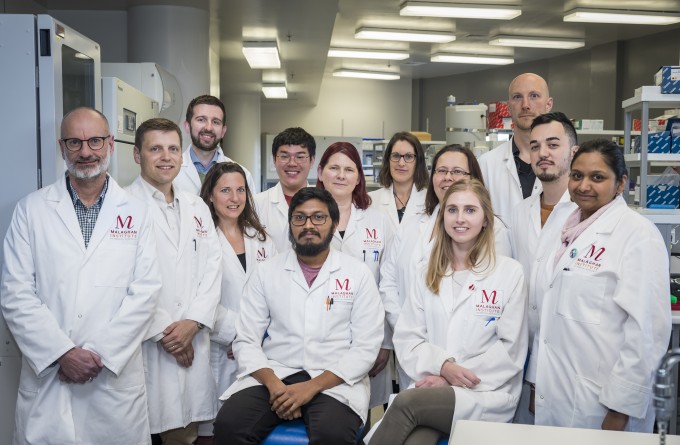Dr Olivia Burn received her PhD from the University of Otago under the supervision of Dr Robert Weinkove within the Cancer Immunotherapy programme at the Malaghan Institute. Her thesis was centred around the innate-like T-cell populations natural killer T (NKT) cells and Vγ9Vδ2 T-cells and how these can be harnessed to enhance cancer vaccine effectiveness, with a particular focus on breast cancer.
Olivia is currently undergoing a fellowship at the Icahn School of Medicine, Mt Sinai Hospital, New York with Assistant Professor Amaia Lujambio.
"My current research is focussed on liver cancer which is among the most commonly-diagnosed and least-survivable cancers in Aotearoa-New Zealand, with notably higher occurrence and death rates in Māori.
"New drugs that broadly stimulate the immune system (immunotherapies) can increase survival rates, but for most patients this treatment alone will not be effective. My project looks to exploit a recent Malaghan Institute discovery involving modifications to an mRNA vaccine platform to induce targeted immune responses in the liver. As this type of response has been associated with positive outcomes in liver cancer patients, I will assess whether these novel vaccines will combine effectively with approved immunotherapies for liver cancer treatment.
"I'm performing this research in close collaboration with Assistant Professor Amaia Lujambio, an experienced liver cancer biologist at the Icahn School of Medicine, where I aim to utilise their state-of the-art animal models of liver cancer in my research."
Read more about her research here.
Related news

TVNZ Breakfast interview with Dr Olivia Burn: Breast cancer research
8 July 2022

Breast cancer research shows promise for future vaccine development
5 July 2022

Dr Olivia Burn: Uncovering the clues to arrest cancer cells
21 July 2021

Research for Life latest funding in support of Malaghan researchers
29 October 2018
Publications
2022
Farrand K, Holz LE, Ferrer-Font L, Wilson MD, Ganley M, Minnell JJ, Tang CW, Painter GF, Heath WR, Hermans IF, Burn OK (2022). Using Full-Spectrum Flow Cytometry to Phenotype Memory T and NKT Cell Subsets with Optimized Tissue-Specific Preparation Protocols. Curr Protoc. 2(7):e482.
Burn OK, Farrand K, Pritchard T, Draper S, Tang CW, Mooney AH, Schmidt AJ, Yang SH, Williams GM, Brimble MA, Kandasamy M, Marshall AJ, Clarke K, Painter GF, Hermans IF, Weinkove R (2022). Glycolipid-peptide conjugate vaccines elicit CD8+ T-cell responses and prevent breast cancer metastasis. Clin Transl Immunology. 11(7):e1401
Prasit KK, Ferrer-Font L, Burn OK, Anderson RJ, Compton BJ, Schmidt AJ, Mayer JU, Chen CJ, Dasyam N, Ritchie DS, Godfrey DI, Mattarollo SR, Dundar PR, Painter GF, Hermans IF (2022). Intratumoural administration of an NKT cell agonist with CpG promotes NKT cell infiltration associated with an enhanced antitumour response and abscopal effect. Oncoimmunology. 11(1):2081009
2021
O K Burn, T E Pankhurst, G F Painter, L M Connor, I F Hermans (2021). Harnessing NKT cells for vaccination. Oxford Open Immunology. 2(1):iqab013
2023
Dasyam N, Sharples KJ, Barrow C, Huang Y, Bauer E, Mester B, Wood CE, Authier-Hall A, Dzhelali M, Ostapowicz T, Kumar R, Lowe J, Maxwell A, Burn OK, Williams GM, Carley SE, Caygill G, Jones J, Chan STS, Hinder VA, Macapagal J, McCusker M, Weinkove R, Brimble MA, Painter GF, Findlay MP, Dunbar PR, Gasser O, Hermans IF (2023). A randomised controlled trial of long NY-ESO-1 peptide-pulsed autologous dendritic cells with or without alpha-galactosylceramide in high-risk melanoma. Cancer Immunol Immunother. 2023 Mar 7
